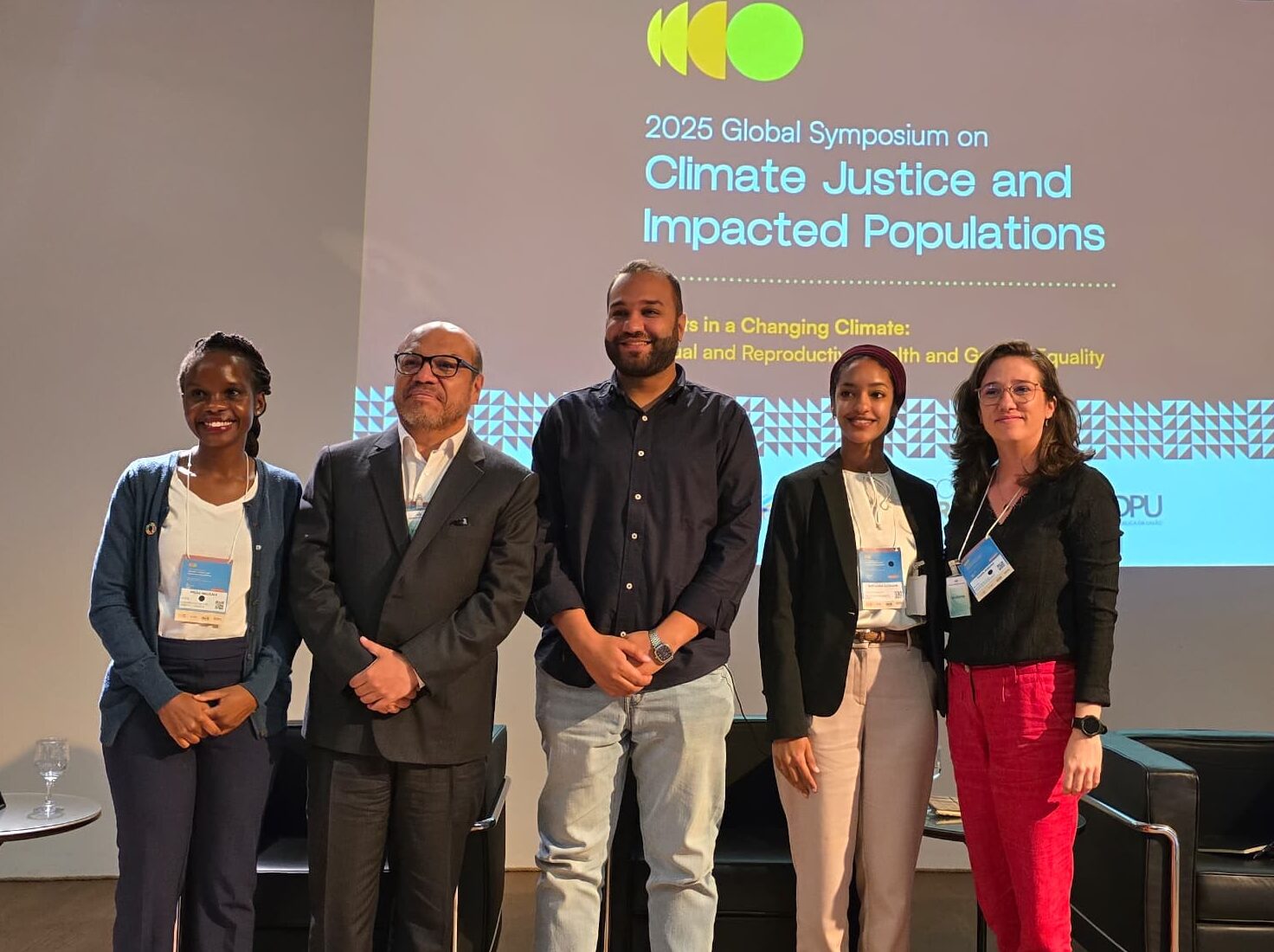Brasilia, Brazil — The 2025 Global Symposium on Climate Justice and Impacted Populations convened in Brazil’s capital from July 28 to 31. The timely symposium was held to discuss resilience amid escalating climate crises, from record-breaking droughts to devastating floods, ahead of COP30 in Belém. The seminar was co-hosted by the United Nations Population Fund (UNFPA) and the Government of Brazil, was themed “Rights in a Changing Climate: Advancing Health, Sexual and Reproductive Rights, and Gender Equality.”
In attendance were government delegates, civil society representatives, economists, and climate and gender experts from the Bahamas, Bangladesh, Brazil, Colombia, Ethiopia, India, Italy, Kenya, Malawi, Nigeria, Panama, Philippines, Sierra Leone, South Africa, South Sudan, Sri Lanka, the United States, Zimbabwe, and beyond. Some netizens also zoomed into the symposium and contributed to the session with the same gusto that in-person attendees had .
Speaking during the Social Protection, Alternative Livelihood and Climate Resilience session, Hugo Rolando Nopo Aguilar, Senior Economist, a World Bank expert, said, “Brazil is one of the countries prone to natural disasters.” Aguilar admitted that the timing for discussing climate change resilience could not be more urgent. “
In his presentation, he underscored that the poor in Brazil are disproportionately affected by natural disasters. He also highlighted that in Latin America and the Caribbean (LAC), Brazil is expected to have the highest increases in poverty due to disasters.

Accordingly, Mohamed Ageez, Youth Participation Officer, UNFPA ASRO, stated that climate change remains the most significant environmental challenge of our era.”
Ageez admitted that climate change disproportionately impacts those least responsible for it, citing that women and girls, particularly in low-income nations, face heightened risks from extreme weather events.”
Accordingly, Augustus Lito M. Narag, EnP, Officer In Charge, Director for Mindanao Affairs and Concurrent Director for Data Management and Systems, Pantawid Pamilyang Pilipino Program (4Ps) on Conditional Cash Transfer in the Philippines, made a presentation that revealed that gender-based violence is exacerbated by climate change. Narag, also said that climate change disrupts access to sexual and reproductive health services and deepens economic inequities.
Markedly, participants from Brasília, policymakers, climate scientists, health experts, youth leaders, and civil society activists who attended the session admitted that climate action needs to prioritize human rights and resilience.
While addressing the panel discussion, Thais Lemos Ribeiro, Coordinator of Education in Human Rights and the Environment at the Ministry of Human Rights and Citizenship, said that “Climate change is not just an environmental crisis, it’s a human rights crisis.” Ribeiro insisted that while many discussions focus mainly on combating climate change, the dignity, health, and choices of millions, especially women and young people, need to be prioritized.”
Notably, Bothaina Eltigani, a PhD candidate at the University of Oxford, presented evidence on the link between food security and the reduction of gender-based violence against adolescent girls affected by drought in Southern Africa. She emphasized that rights-based social protection offers a vital opportunity to implement transformative climate financing, addressing not only environmental challenges but also the intertwined socioeconomic and political factors that exacerbate vulnerability. She underscored that climate solutions should not just be regurgitated in summits but implemented in grassroots places.
The symposium was a strategic milestone on the road to COP30, which also comes three decades after the landmark International Conference on Population and Development (ICPD) and the UN Framework Convention on Climate Change. The symposium builds on the 2030 Agenda for Sustainable Development, emphasizing that climate justice must uphold sexual and reproductive health, combat gender-based violence, and dismantle harmful practices.
Whether all the discussions will explore research gaps, showcase rights-based adaptation strategies, and push for stronger partnerships to finance climate-resilient health systems will only be told in the sands of time.

